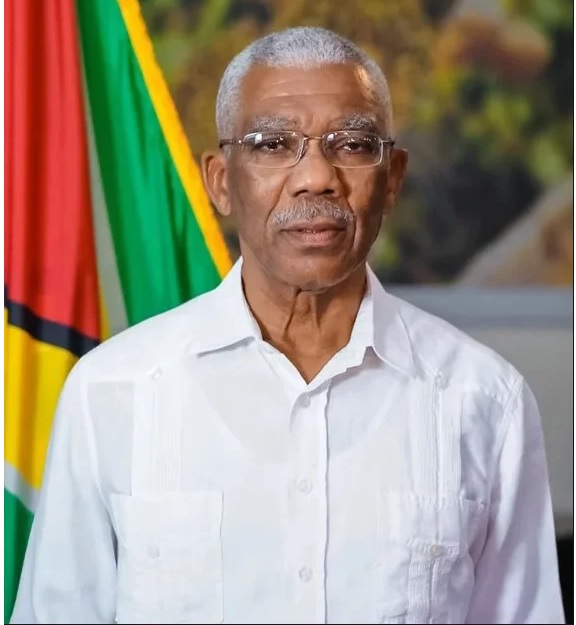Former President David Granger on Friday expressed support for electoral reform and said that the Guyana Court of Appeal should rule on electoral matters, not the Caribbean Court of Justice (CCJ).
“Our electoral laws have to be seriously re-examined but I believe we live in a society where we are mature enough to conduct elections I don’t think there is need for foreign intervention. The level of foreign influence in the period [March-August 2020] was phenomenal…the (elections) Commission was brought under relentless influence from foreign agencies… the whole atmosphere was toxic,” he said on the March 14 edition of his party’s ‘Public Interest’ interview programme.
Granger, whose party has been accused of colluding with employees of the Guyana Elections Commission (GECOM) in an attempt to rig the 2020 Elections did not address the US-funded electoral reform project which has dominated reports over the last week but he did maintain that Guyana must put mechanisms in place to prevent “the type of mischief perpetrated on the people of Guyana last year.”
Pressed to identify specific areas of improvement, Granger identified the structure and function of the Commission, the role of the Caribbean Court of Justice and the National Register of Registrants (NRR).
“We need a sanitization of the list of voters. They are too many dead voters on the list,” Granger said, echoing a refrain from his party.
Currently the laws governing the registration of voters only allows for the list to be updated via claims and objections but the APNU+AFC Coalition continues to call for House-to-House registration so that a new list can be generated.
On Tuesday, Opposition-nominated GECOM Commissioner Vincent Alexander told reporters that he believes the legislature should amend these laws to allow for House-to-House registration.
Other areas which Granger would like to see addressed include the role of the Caribbean Court of Justice in the resolution of electoral disputes.
“I am of the view that in internal electoral matters, we need to strengthen the role of our own Court of Appeal and… the Court of Appeal was competent to rule… on electoral matters inside of Guyana,” he claimed.
The former president seemed most affected by the CCJ’s ruling in the case of Eslyn David when it set aside the ruling of the Guyana Court of Appeal on valid votes.
In that case the apex court said that the local appellate court acted outside its ambit when it pronounced on the constitutional meaning of “votes cast” at the March 2nd polls.
“Article 177 (2) (b) in fact required no refinement. That article in plain and simple language has always said what it meant and meant what it said. There was no need for interpretation of that article or any other article of the constitution,” President of the CCJ Justice Adrian Saunders said at the time.
The court said it was also inconsistent with the constitution for the Chief Election Officer (CEO) or the Guyana Elections Commission (GECOM) to disenfranchise thousands of electors in a seemingly non transparent and arbitrary manner, without the due processes established in Article 163 and the National Assembly (Validity of Elections) Act.
Granger appears to disagree, stating on Friday that he supports the action taken by CEO Keith Lowenfield.
He also said that in reforming its electoral process Guyana must examine GECOM.
“We have to look at a means of ensuring that the appointment of the Chairman of the Commission is not protracted. We also have to look at the appointment of the Commission. Is it prudent for each major party to nominate exactly three commissioners? Isn’t this a recipe for gridlock? How do we appoint a chair? I am of the view that the person should be a judge,” he advanced, adding that there also must be clear executions of the function of the Chief Election Officer (CEO) who is tasked with advising the Chair and executing the elections.
Granger himself contributed to the gridlock surrounding the naming of a GECOM Chair by rejecting three lists of candidates from the Opposition Leader and then unilaterally choosing a chair.






